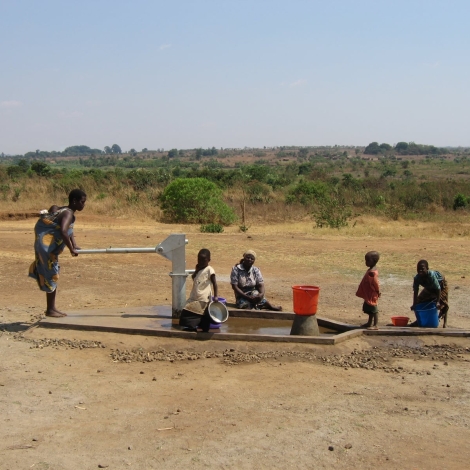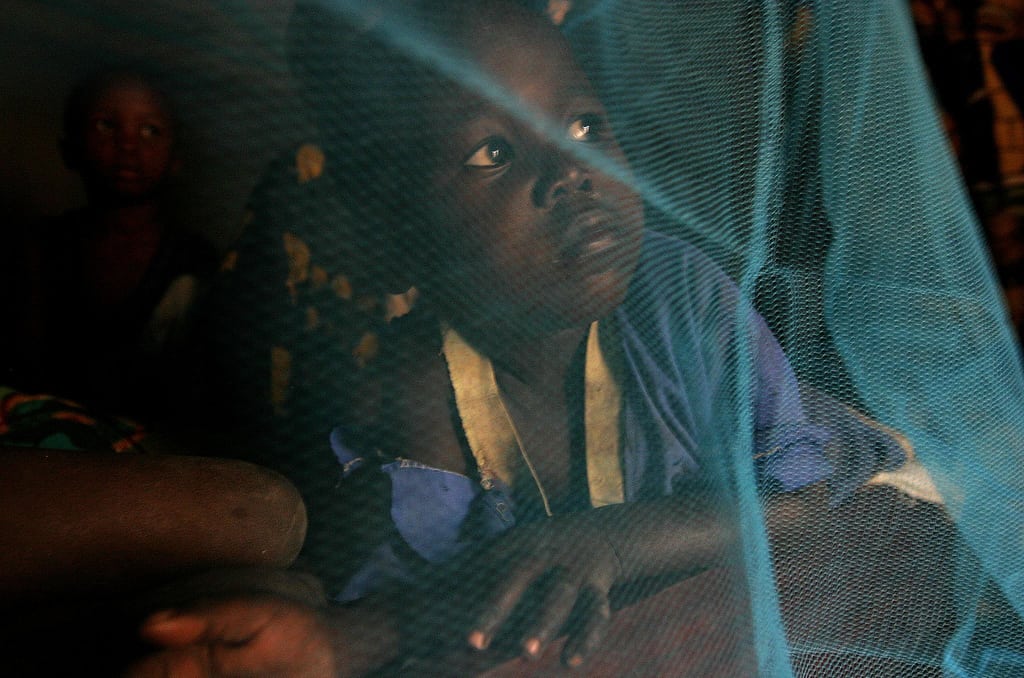Africa has witnessed a tremendous increase in drilled water wells, or boreholes, over the last 20 years. Groundwater provides an estimated 75 percent of Africa’s domestic water demands. The boreholes and handpumps used to supply this water are financed by development programs, households and local businesses. Groundwater used for farm irrigation in Africa is also expected to grow. Effective groundwater monitoring and management are thus essential to ensure that the continent meets its long-term domestic and agricultural demands without depleting or damaging this resource.
UNICEF supports borehole drilling programs in many African countries. If boreholes are not properly sited, designed and constructed in the first place, supplies cannot be maintained, and investments are wasted. Considering the long term, groundwater resources management is required to prevent over-abstraction, pollution and massive supply failure.
There are weaknesses in how some borehole drilling initiatives are undertaken in a number of African countries. UNICEF is the main UN agency supporting the Sustainable Development Goals drinking water target in rural and peri-urban areas. As such, the agency’s programs need to demonstrate professional groundwater development and support effective groundwater management.
In light of this, UNICEF has just published a document that provides practical guidance on professional water well drilling. It builds on associated guidelines from the Rural Water Supply Network (RWSN) and previous work (particularly the Toolkit to Professionalise Manual Drilling, and the Code of Practice for Cost Effective Boreholes).
The guidance note sets out six areas of engagement, summarized below:
- The institutional framework matters – promote initiatives to improve national (or state) policies, regulation, standards and procedures of borehole drilling, including the clarification of roles and responsibilities.
- Groundwater information is essential – value groundwater data and ensure that drilling records are collected, quality assured and collated. This data, together with information generated from it, should be made readily available to help inform future borehole siting and design, as well as groundwater resources management.
- Capacity is fundamental – raise the skills and knowledge of groundwater development and encourage the availability of suitable equipment in the country.
- Project design, implementation and monitoring needs to be thorough – improve the design, implementation and monitoring of specific borehole drilling or rehabilitation projects, and ensure that documentation of the process and results is readily available.
- Dialogue and awareness is crucial – foster dialogue between government agencies (including regulators), drilling contractors and consultants, NGOs, development partners and civil society. Encourage and support efforts that raise awareness of decision-makers and the public about groundwater potential, management and its exploitation.
- Investment is indispensable – invest adequate financial resources to improve and sustain professional groundwater development.
These are not a sequence of ordered steps, but rather a set of entry points and options. Priorities should be set, and a mix of actions should be taken, depending on the context. There is no simple formula to raise the professionalism of borehole drilling and rehabilitation. As no single organization can successfully raise professionalism alone, collaboration and partnerships with other organizations are necessary.
You can download the guidance note from rural-water-supply.net.
For more, please see Kerstin Danert’s article, Improving the Professionalism of Drilled Water Wells in Africa – Want to Join Us?
And she explores the subject further in her E4C Webinar, Manual Drilling: A Global Perspective of Local Realities.

